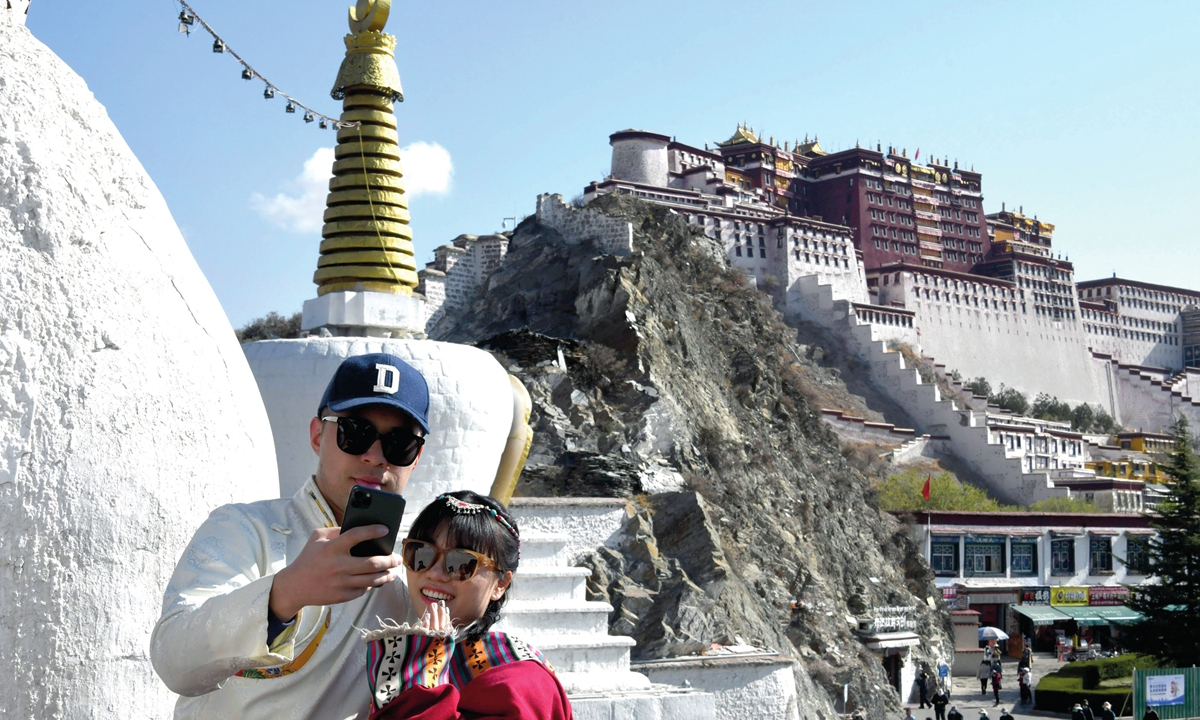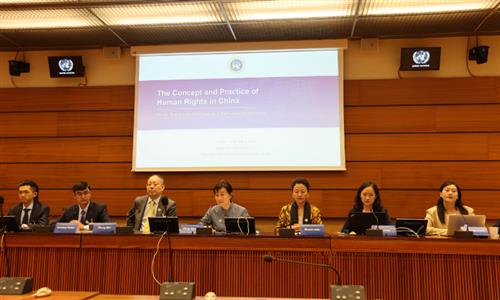Foreign envoys laud development of Xizang, calling a happy life there 'true essence of human rights'

Tourists dressed in ethnic clothing take pictures in front of the Potala Palace in Lhasa, Southwest China's Xizang Autonomous Region on April 17, 2023. Photo: VCG
Envoys from 11 developing countries stationed in Geneva visited Southwest China's Xizang (Tibet) Autonomous Region from August 27 to September 2, through which the diplomats said that the level of development in various sectors in the region exceeded their expectations - a vivid example that a happy life for all is what human rights protection is all about, a spokesperson of the Chinese Foreign Ministry said on Monday.
Those diplomats also called out lies about Xizang concocted by certain Western countries as absurd and misleading, and being unable to deceive the international community.
Envoys from developing countries including Pakistan, Belarus, Venezuela, Cuba and Nicaragua stationed in Geneva observed bilingual classes in local middle and elementary schools, watched courses on Tibetan music, dancing, calligraphy, innovation and artificial intelligence, Mao Ning, the spokesperson of the ministry, told a press conference on Monday.
They also visited the dormitories and canteens of boarding middle schools. The 15-year free education in Xizang received recognition from the envoys. They said that given the vast area of Xizang, providing boarding schooling to local students is an effective way of ensuring the equal right to high-quality education among children of all ethnic groups and that China provides a stellar example for all countries in protecting people's right to education.
The envoys spoke highly of China's tremendous efforts in safeguarding the freedom of religious belief, protecting religious relics and carrying forward Tibetan medicine. They toured the Potala Palace, Jokhang Temple, Sera Monastery, and the Southeast Tibetan Cultural Heritage Museum, among other places, according to the ministry.
They engaged in heartfelt exchanges with local Tibetans, Monpa people, religious figures, and primary and secondary school teachers, personally experiencing the achievements in human rights development across the region and the happy lives of its diverse people, the ministry said.
The envoys praised the Chinese government for its emphasis on ensuring freedom of religious belief and the protection of religious and cultural heritage. They were deeply impressed by the well-preserved religious structures, statues, murals, and the religious activities such as the monks' debates at the Potala Palace, Jokhang Temple, and Sera Monastery, as well as the devout worship of believers.
The envoys also took a detailed interest in the preservation and transmission of Tibetan medicine, appreciating the tremendous efforts made by the Chinese government to safeguard and promote the continuation of Tibetan medical traditions.
In commenting on the lies about Xizang concocted by certain Western countries, the envoys said those falsehoods were utterly absurd and misleading, and would not deceive the international community, Mao said.
The achievement China has made attests to the importance that countries need to pursue their own path of human rights development that suits their national realities, Mao noted.
The envoys also expressed readiness to enhance exchanges and cooperation with China, strengthen multilateral coordination on human rights affairs, jointly oppose the politicization of human rights, safeguard international fairness and justice and advance the sound development of the international human rights cause.
Global Times

